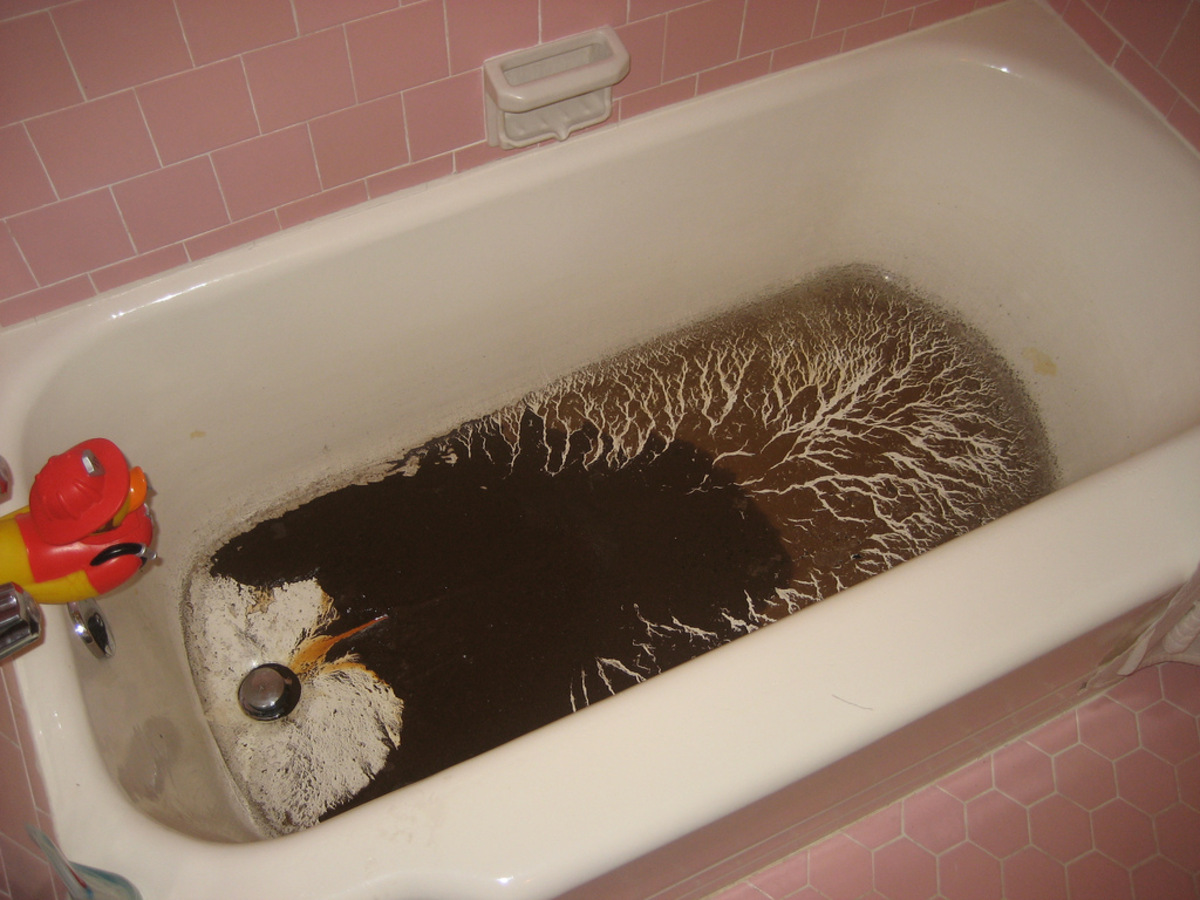We have found this post about What To Do If Sewage Starts Backing Up Into the Shower listed below on the net and decided it made sense to write about it with you on this site.

Sewer back-up in the bathtub can be a traumatic and unsanitary problem for any property owner. Not only is it inconvenient, yet it additionally presents major wellness threats and shows underlying problems with the plumbing system. Comprehending why sewer is showing up through the bath tub is crucial for taking appropriate activity to address the problem effectively.
Introduction to the Issue
Comprehending the Problem
When sewer starts backing up into the bathtub, it's a clear indicator of a problem with the drainage system. The wastewater that should be moving away from your home is instead discovering its way back into your home, which can bring about significant damage and carcinogen.
Potential Reasons
Several aspects can add to sewer back-up in the tub. From blockages in the sewer line to concerns with the plumbing infrastructure, identifying the root cause is necessary for locating a solution.
Usual Factors for Sewer Backup
Blockages in the Sewer Line
Among one of the most usual sources of sewer backup is a clog in the drain line. This can occur as a result of the accumulation of particles, grease, or international items in the pipes, protecting against correct flow and causing sewer to support right into your bath tub.
Tree Origin Breach
Tree origins looking for moisture and nutrients can infiltrate drain lines with tiny cracks or joints. In time, these origins can expand and broaden, triggering significant damage to the pipes and resulting in sewage backup issues.
Aging Facilities
Older homes may have dated plumbing systems that are extra prone to rust, cracks, and wear and tear. As pipes age, they end up being extra prone to leakages and clogs, enhancing the chance of sewer back-up occurrences.
Heavy Rainfall or Flooding
Throughout durations of heavy rainfall or flooding, the sewer system might end up being overwhelmed with excess water, creating back-ups and overflows. This can result in sewer supporting right into bathtubs and various other fixtures inside the home.
Wellness Dangers Connected With Sewage Backup
Contamination of Water
Sewer backup can contaminate the water system in your home, posing a significant health threat to you and your household. Exposure to polluted water can result in stomach problems, skin infections, and other health problems.
Spread of Disease
Sewage contains dangerous microorganisms, infections, and parasites that can cause a variety of diseases, including liver disease, cholera, and gastroenteritis. Entering into contact with sewer or infected surface areas puts you at risk of infection.
Mold and mildew Development
Moisture from sewer backup can develop excellent conditions for mold and mildew growth in your home. Mold spores can aggravate respiratory system issues and create allergic reactions in sensitive individuals, making timely cleaning essential.
Indicators of Sewer Backup
Foul Odors
Unpleasant smells originating from drains pipes or fixtures, specifically in the restroom, may suggest sewage backup problems. These smells are commonly solid and relentless, signaling a problem that calls for prompt focus.
Slow Draining Fixtures
Bath tubs, sinks, and toilets that drain pipes slowly or otherwise at all could be experiencing sewage backup. If numerous fixtures are impacted simultaneously, it's likely that the concern originates from a typical factor, such as the major drain line.
Gurgling Sounds
Odd gurgling or gurgling sounds originating from drains pipes when water is running in other places in your house are a measure of air caught in the plumbing system. This air accumulation can result from sewage back-up and must be explored without delay.
Immediate Actions to Take
Turning Off Supply Of Water
In the event of sewage back-up, it's essential to shut off the water to prevent additional contamination and damage. Find the major water shutoff valve in your home and shut it off until the issue can be dealt with.
Calling an Expert Plumber
Handling sewer backup is not a do it yourself job. Call a certified plumber with experience in taking care of sewage-related issues to analyze the situation and do necessary repairs or clean-ups.
Preventing Contact with Infected Water
Until the sewage back-up is resolved, prevent contact with infected water to stop the spread of bacteria and microorganisms. Use safety gear if you should be in the afflicted area and wash your hands completely afterward.
Safety nets
Normal Upkeep of Sewage System Lines
Set up normal evaluations and upkeep of your sewer lines to identify and attend to potential issues prior to they escalate right into major problems. This can include clearing out debris, checking for tree root intrusion, and fixing any type of damaged pipes.
Mounting Bayou Valves
Consider mounting backwater shutoffs in your plumbing system to stop sewage from receding into your home during durations of heavy rainfall or flooding. These valves instantly close when water draws back up, protecting your residential or commercial property from contamination.
Correct Disposal of Home Waste
Avoid flushing anything apart from toilet paper and human waste down the bathroom to stop blockages and clogs in the sewer line. Dispose of grease, oil, and various other household chemicals correctly to decrease the danger of plumbing issues.
Cleaning Up After Sewage Backup
Disinfection Procedures
Completely disinfect and sterilize impacted areas after sewage backup to eliminate unsafe bacteria and avoid mold growth. Usage ideal cleansing products and safety gear to guarantee safe and reliable clean-up.
Remediation of Affected Locations
Fix any type of damage to floor covering, wall surfaces, or fixtures brought on by sewage backup. Relying on the degree of the damages, you may require to replace carpets, drywall, or various other materials to restore your home to its pre-loss problem.
Why Is Water Backing Up in My Bathtub When I Flush My Toilet?
What to do about a sewer line clog
First, don’t bother with plunging. No amount of plunging will dislodge the clog in a sewer line. The clog is too far away. Plungers are for clogs in the toilet itself, not the sewer line. Plus, the most likely causes of a sewer clog are:
Tree roots Flushed toys or feminine products Grease buildup Those items don’t move easily. And in the case of tree roots, the roots need to be cut out of the pipe and the pipe will need to be repaired.
You’ll need a closet auger. A closet auger is a type of plumber’s snake with a protective cover to keep from scratching the delicate porcelain toilet. If the clog is further down, you may need to remove the toilet or use one of your cleanouts to get to the clog.
We also recommend doing a video inspection of the drain to ensure that the cause of the clog has been completely removed. Otherwise, you could have the same problem again in a few days or weeks.
https://mspplumbingheatingair.com/blog/why-is-water-backing-up-in-my-bathtub-when-i-flush-my-toilet

We were shown that write-up on Why is Sewage Backing Up Into My Bathtub? from a friend on another website. Are you aware of somebody who is curious about the topic? Do not hesitate to promote it. I take joy in reading our article about What To Do If Sewage Starts Backing Up Into the Shower.
Try Here